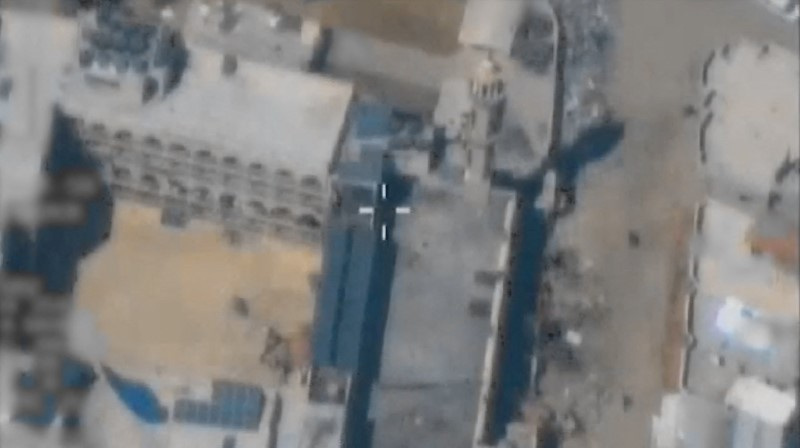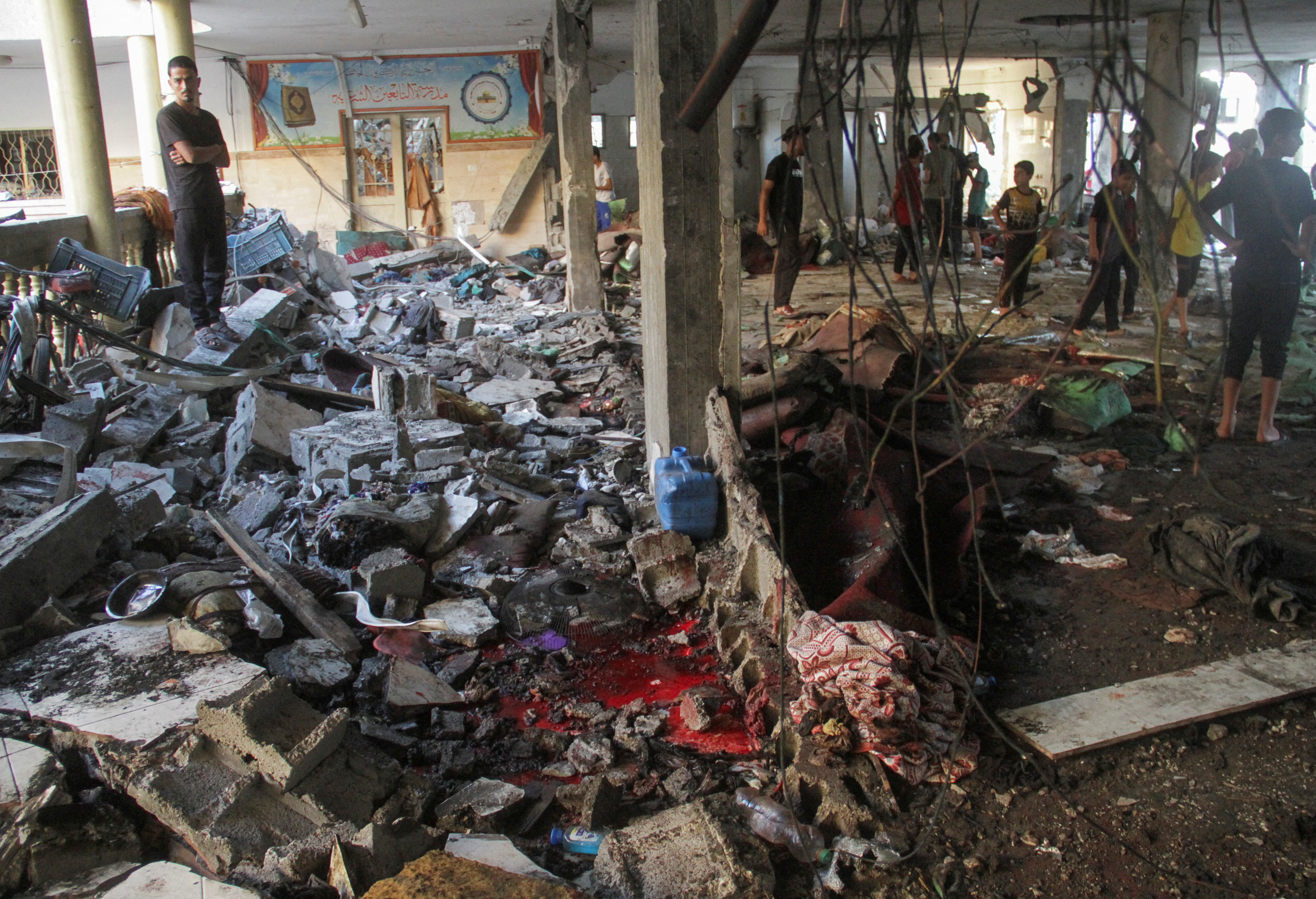By Nidal al-Mughrabi
CAIRO (Reuters) -Israel expanded evacuation orders in Khan Younis in the southern Gaza Strip overnight, forcing tens of thousands of Palestinian residents and displaced families to leave in the dark as explosions from tank shelling reverberated around them.
The Israeli military said it was attacking militants from the Hamas group - which administered Gaza before the war - who were using those areas to stage attacks and fire rockets.
On Saturday, an Israeli airstrike on a school where displaced Palestinians were sheltering in Gaza City killed at least 90 people, according to the civil defence service, prompting an international outcry.
The Israeli military said it had struck a Hamas and Islamic Jihad militant command post, an allegation the two groups rejected as a pretext, and killed 19 militants.
In Khan Younis in the south of the Gaza Strip, the evacuation instruction covered districts in the centre, east and west, making it one of the largest such orders in the 10-month-old conflict, two days after tanks returned to the east of the city.
The announcement was posted on X and in text and audio messages to residents' phones: "For your own safety, you must evacuate immediately to the newly created humanitarian zone. The area you are in is considered a dangerous combat zone."
Philippe Lazzarini, head of the United Nations' agency for Palestinian refugees UNRWA, said people in Gaza were trapped and had nowehere to go.
"Some are only able to carry their children with them, some carry their whole lives in one small bag. They are going to overcrowded places where shelters are already overflowing with families. They have lost everything and need everything," he said.
The Israeli army said it had struck around 30 Hamas military targets in the previous 24 hours, including military structures, anti-tank missile launch posts, and weapons storage facilities.
The Islamic Jihad armed wing said fighters fired mortar bombs against Israeli forces massing in the eastern areas of Khan Younis.
Later on Sunday, an Israeli airstrike near the Khan Younis market at the center of the city killed four Palestinians and wounded several others, medics said.
Lines of smoke rose from areas where Israeli planes carried attacks in the eastern and western parts of the city. Residents said two multi-floor buildings were bombed.
Nearly 40,000 Palestinians have been killed in the Israeli offensive in Gaza since the war broke out last October and the toll is rising by the day, the Gaza health ministry says.
Gaza health officials say most of the fatalities have been civilians but Israel says at least a third are fighters. Israel says it has lost 329 soldiers in Gaza.
Israel began its assault on Gaza after Hamas fighters stormed into southern Israel on Oct. 7, killing 1,200 people, mostly civilians, and capturing more than 250 hostages, according to Israeli tallies.
TENS OF THOUSANDS FORCED TO LEAVE OVERNIGHT
Most of Gaza's 2.3 million people have been displaced from their homes, according to the United Nations, while their narrow strip of land has largely been reduced to a wasteland of rubble.
Palestinian and United Nations officials say there are no safe areas in the enclave. Areas designated as humanitarian zones, like Al-Mawasi in western Khan Younis where residents were being sent, have been bombed several times by Israeli forces.
Tens of thousands left their homes and shelters in the middle of the night, heading west toward Mawasi and north toward Deir Al-Balah, already overcrowded with hundreds of thousands of displaced people.

"We're exhausted. This is the 10th time I and my family have had to leave our shelter," said Zaki Mohammad, 28, who lives in the Hamad housing project in western Khan Younis, where the occupants of two multi-floor buildings were ordered to leave.
"People are carrying their belongings, their children, their hopes and their fears and running towards the unknown, because there is no safe place," he told Reuters via a chat app. "We are running from death to death."
(Reporting and writing by Nidal al-Mughrabi; Editing by Kevin Liffey and Angus MacSwan)
